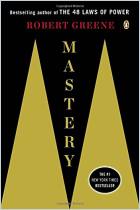
Recommendation
Military and business strategists agree that if you cannot contend against others, you will quickly get left behind. The problem is, most people think and act tactically – not strategically. Robert Greene's intelligent book can help you change your approach. It takes a fascinating, in-depth look at some of the world's most famous master military strategists: Napoleon Bonaparte, Sun-tzu, Alexander the Great, Carl von Clausewitz, Erwin Rommel, Hannibal and many more. Greene organizes the sagacious thinking of these masterminds into 33 strategies, drawn from mostly from warfare but also from business, politics, entertainment and nature. He provides concrete ideas on how to put these cerebral concepts to practical use. The information is packed in tight. Fascinating accent pieces run in the outer margins, but alas, in small, red italics. getAbstract highly recommends this remarkable book that explains how to meet your challenges with the best battle-tested strategies.
Summary
About the Author
Robert Greene writes on topics of strategy. He has a degree in classical studies from the University of Wisconsin-Madison. His frequent collaborator, Joost Elffers, produced this book.















Comment on this summary